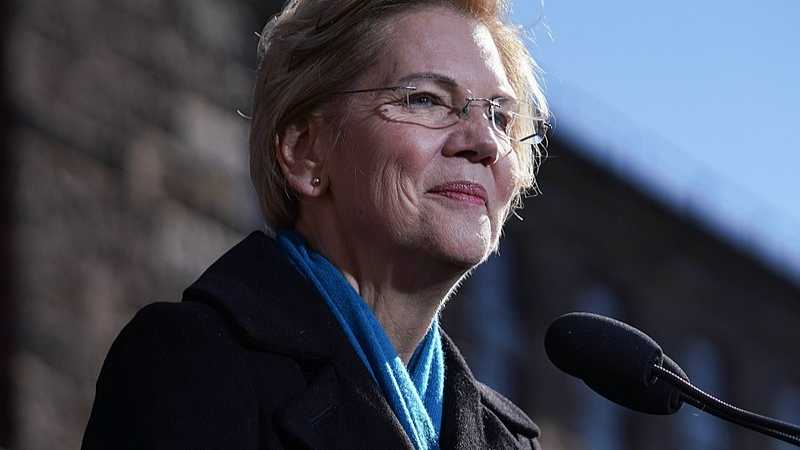Senator Elizabeth Warren centers reelection bid around anti-crypto stance

Massachusetts Senator Elizabeth Warren has made her anti-crypto stance a central part of her reelection campaign, despite most Americans believing that cryptocurrencies are the future of finance.
In her recent tweet, the Democratic senator cited a Politico headline that said she was “building an anti-crypto army.” The pro-crypto community has taken to social media to criticize Warren’s strategy, with some suggesting it will push innovation offshore.
I’m in this fight to put our government on the side of working families. Join our re-election campaign today: https://t.co/KuZwvrwkqT pic.twitter.com/fCUcqE9PZM
— Elizabeth Warren (@ewarren) March 29, 2023
Recent polls suggest that Warren’s anti-crypto stance may not win her votes. A February survey by Coinbase found that 76 percent of the respondents believed that “cryptocurrency and blockchain are the future.” Another survey by Grayscale Investments in November 2022 showed similar results, with 59 percent of Democrats and 51 percent of Republicans favoring crypto assets.
Despite these findings, recent collapses such as that of BlockFi, FTX, and Terra Luna have negatively impacted public trust in the industry.
Senator Warren, a former law professor, had previously expressed her opposition to the cryptocurrency market in an interview with the New York Times, likening it to shadow banking. She argued that although the market provides similar services to traditional banking, it lacks consumer protection and financial stability.
Imagine thinking that building an "Anti-crypto army" is going to win you votes?
— Coin Bureau (@coinbureau) March 30, 2023
Warren pushes Senate to ban crypto wallets, scrutinize DeFi
As a part of her anti-cryptocurrency strategy, Warren is also pushing the Senate to ban cryptocurrency wallets, claiming it will protect Americans from scams. However, her proposed legislation, the Digital Assets Anti-Money Laundering Act, has been met with resistance from industry insiders and experts alike.
Critics argue that the bill is an overreach that will drive cryptocurrency businesses overseas and limit consumer choice. The proposed law prohibits using digital asset mixers and requires self-hosted wallets to have Anti-Money Laundering policies. This would force many entities to shut down or stop servicing American users, reducing competition in banking and other financial services to benefit traditional banks.
Her proposed legislation on cryptocurrency has also faced criticism for being too harsh on decentralized finance (DeFi) and burdening legitimate users and businesses. Critics argue that the proposed legislation is designed to cripple the crypto industry rather than protect consumers.
Warren believes cryptocurrency is frequently used for money laundering. Still, blockchain analytics firm Elliptic data show that only $10 billion or less of cryptocurrency is involved in such activities compared to traditional currencies, which amount to $800 billion.
According to the proposed legislation, all crypto miners, including individual miners, will be classified as money service businesses. Software development companies must register as money service providers and comply with Anti-Money Laundering policies. Critics argue that this is an excessive regulatory burden that may force legitimate users and businesses to leave the U.S. while criminals operate secretly.
The Financial Action Task Force has suggested that all cryptocurrency transactions should be subject to scrutiny, but some countries are taking a more moderate stance. For instance, in the European Union, hosted wallets must disclose details for every transaction. Still, those between unhosted wallets only need to implement AML compliance for 1,000 euros or more transactions.
Critics also said that lawmakers, including Warren, should focus on promoting the public good rather than carrying out a crusade against an entire industry. Instead of bringing the hammer down on cryptocurrency so heavily, a better approach would focus on the businesses exchanging cryptocurrency for government-issued fiat currency or on- and off-ramps, where ill-gotten money enters or disappears from the blockchain.






